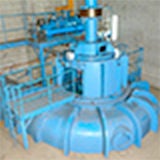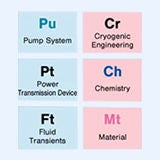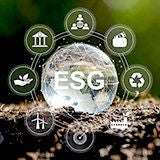Japan is one of the world's leading "resource-rich countries." Japan has many spots where magma accumulates, such as volcanoes and plate boundaries, and is the third largest country in the world in terms of geothermal resources. Japan has the potential to become an energy superpower in the future.
Despite this, currently geothermal power generation in Japan accounts for only 0.2% of the total. Geothermal power plants are time-consuming and expensive to build, and because the earth contains harmful gases, safety must be taken into consideration when processing the energy above ground. EBARA is a rare manufacturer that has the technology for almost all of the main equipment in geothermal power plants, including pumps, turbines, cooling towers, and condensers, and has been working to advance and popularize geothermal power generation.
Currently, a big challenge has begun in the field of geothermal energy. This is "deep depth/supercritical geothermal energy." Ultra-hot material at 400 to 500 degrees has been discovered in a magma chamber 3 to 6 km underground, deeper than previously discovered. Its true identity is ancient seawater that was drawn in when the plates subducted, and it has transformed into a mysterious fluid that is neither liquid nor gas. "Supercritical geothermal fluid" is a highly toxic and corrosive fluid that is subject to high temperatures and pressures, but one magma chamber is thought to contain the thermal energy of 30 nuclear reactors. Currently, in Japan, it is possible to generate regional electricity equivalent to one-tenth of that produced by a single nuclear reactor, and drilling has begun toward a deep magma chamber. The goal is to have a pilot plant in the 2030s. And a large-scale plant in the 2050s.



















